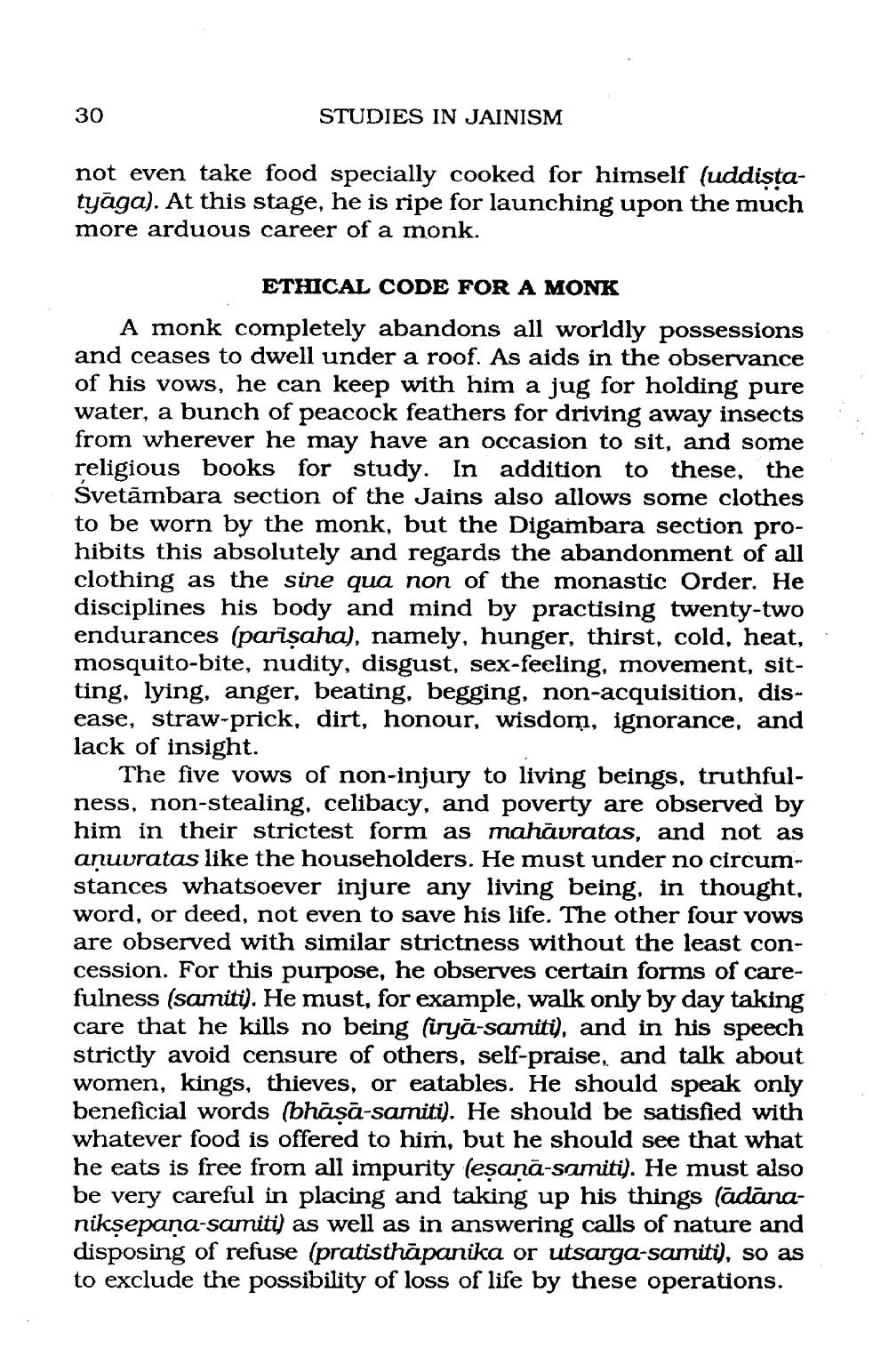________________
30
STUDIES IN JAINISM
not even take food specially cooked for himself (uddiṣṭatyaga). At this stage, he is ripe for launching upon the much more arduous career of a monk.
ETHICAL CODE FOR A MONK
A monk completely abandons all worldly possessions and ceases to dwell under a roof. As aids in the observance of his vows, he can keep with him a jug for holding pure water, a bunch of peacock feathers for driving away insects from wherever he may have an occasion to sit, and some religious books for study. In addition to these, the Svetämbara section of the Jains also allows some clothes to be worn by the monk, but the Digambara section prohibits this absolutely and regards the abandonment of all clothing as the sine qua non of the monastic Order. He disciplines his body and mind by practising twenty-two endurances (pariṣaha), namely, hunger, thirst, cold, heat, mosquito-bite, nudity, disgust, sex-feeling, movement, sitting, lying, anger, beating, begging, non-acquisition, disease, straw-prick, dirt, honour, wisdom, ignorance, and lack of insight.
The five vows of non-injury to living beings, truthfulness, non-stealing, celibacy, and poverty are observed by him in their strictest form as mahāvratas, and not as aṇuvratas like the householders. He must under no circumstances whatsoever injure any living being, in thought, word, or deed, not even to save his life. The other four vows are observed with similar strictness without the least concession. For this purpose, he observes certain forms of carefulness (samiti). He must, for example, walk only by day taking care that he kills no being (irya-samiti), and in his speech strictly avoid censure of others, self-praise, and talk about women, kings, thieves, or eatables. He should speak only beneficial words (bhāṣā-samiti). He should be satisfied with whatever food is offered to him, but he should see that what he eats is free from all impurity (eṣaṇā-samiti). He must also be very careful in placing and taking up his things (adānanikṣepana-samiti) as well as in answering calls of nature and disposing of refuse (pratisthapanika or utsarga-samiti), so as to exclude the possibility of loss of life by these operations.




